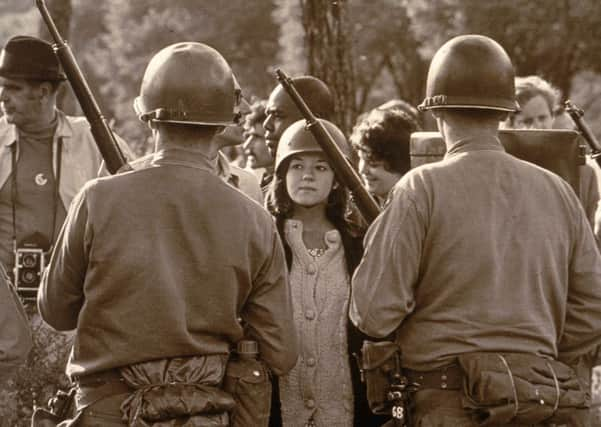Ellis Thorpe: Why war? Einstein's question is unanswered


Splendid idealism that didn’t work. We haven’t stopped making war, even though Vietnam was settled in 1975 after the Communists captured Saigon and an exhausted US pulled out.
Today the paradoxical question Einstein once asked Freud – “Why war?” – is as relevant as ever, as conflict on a horrendous scale in the form of bloody civil wars and terrorism rages throughout the world.
Advertisement
Hide AdAdvertisement
Hide AdSo much so, it wouldn’t be unreasonable to generalise from history and say for human beings and their groups, that there is an endemic propensity for war and violence.Moreover, when a group, country or nation is at relative peace and ruled by law, it is paradoxical that it’s a peace maintained by violence used by a legitimate superior force.
Proposals for an international organisation with legitimate force “to maintain law and order” between nations came into popularity after the carnage of the First World War.
The proposal is said to have been inspired by the idealism of President Woodrow Wilson in the context of 1933 and the rise of Nazism, at around the time Albert Einstein was asking “Why war?”
Einstein had written to Freud, posing the question of why human beings were so violent towards each other as individuals and in groups and had he any answers? Einstein was hoping that a recognised expert in the fundamental psychological structures of human beings, namely the instinctual basis of behaviour, would have some answers to the question “Why war?”
Freud very much believed in the instinctual basis of human aggression from which came the “propensity to war” and was sceptical that there were “cultures of tranquillity” anywhere in the world.
He and Einstein agreed on a supranational organisation like the League of Nations, but both were realistic about the chances of stopping wars, preventing them, or even getting rid of individual violence.
One balloon Freud burst was the red one, that a form of communism was the answer with co-operation replacing competition.It seems, however, he didn’t dismiss the idea of the “civilising process,” that through the development of culture, the instincts of aggression, hatred and lust for power may be played down if not replaced.
Since Freud wrote this over 80 years ago it doesn’t appear to be happening, mainly because cultures contain ideologies of politics, religions and morality which, at root, are mutually antagonistic.
Advertisement
Hide AdAdvertisement
Hide AdArguably, the paradox of violence to end wars between humans will always be with us but whether the cause is instinctual or economic, social and cultural is a debatable issue.
Ellis Thorpe. BA, MSc, is a retired Aberdeen University Social Science lecturer.